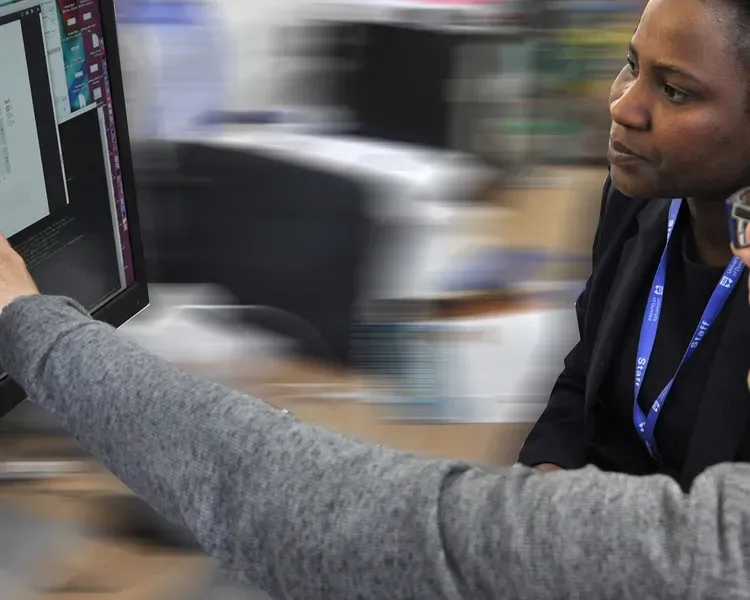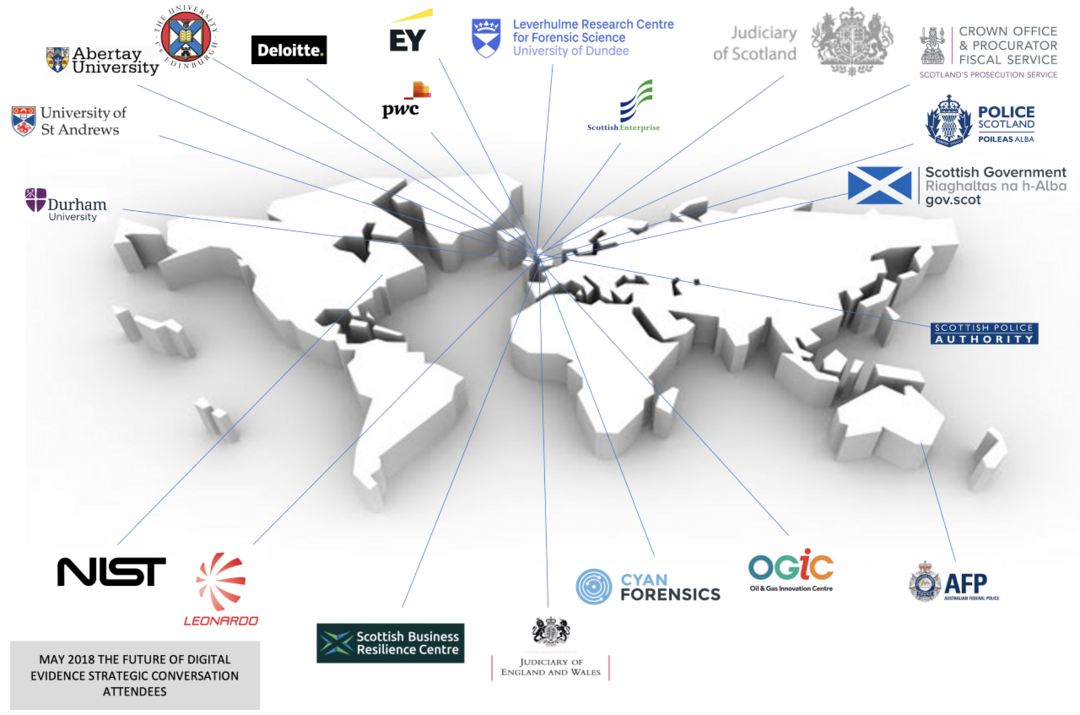The future of digital evidence

The scale of digital disruption for justice systems will be nothing short of revolutionary. The advent of ubiquitous digital devices churning out petabytes of data challenge our understanding of what a crime scene is, where crime is committed and how evidence is collected, analysed shared and communicated.
Even crimes without digital means have digital evidence associated with them as our actions are observed and recorded by networks all around us. The possibilities and the threats may be limitless but this future is here and now with a justice systems struggling to cope in the early days of a changed world.
In May 2018 technologists, industrialists, academics, forensic scientists, judges, management consultants, government and law enforcement gathered to explore these many possible futures.
This Strategic Conversation was produced in partnership with Police Scotland and included a variety of senior police officers. A report was subsequently produced to inform Police Scotland’s strategic approach to digital evidence. The group explored the challenges of lexicon and a shared terminology to describe the domain and the challenges posed.
Current challenges were identified as:
- the pace of change
- public trust
- legislation and jurisdictions
- the volume of data
- trust in data
- education
Future challenges were identified as:
- impact of artificial intelligence
- bias of AI programmers
- how to triage data
- physical versus virtual investigation
- policing in virtual spaces
- investigative models in digital space
The group explored these challenges from the perspective of various players in the criminal justice system by empathy mapping personas of pensioners, teenagers, parents, journalists, business persons and perpetrators.
The group developed a series of workstreams that could potentially help Police Scotland and other members of the criminal justice system to best meet the challenges ahead. These projects streams were:
- a portal for reporting phishing type offences and for educating the public on the dangers of these
- build an analysis and responding function to deal with intelligence gathered about online scams
- move away from confiscating devices related to a crime
- training in digital forensics for first responders
- making standards of admissibility the same across jurisdictions
- improved triage and data gathering procedure

Attendees of the future of digital evidence conversation
You can read The Future of Digital Evidence - Proceedings of a Strategic Conversation on Discovery, the University of Dundee Research Portal.